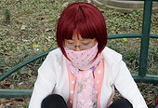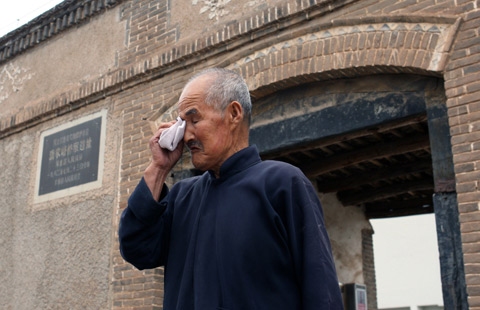Guilin, a tourist's dreamland
By CHUAN JIANGand CHUAN JIAO Updated: 2014-10-10 17:00Following the routes that the guide book recommended, we started our sightseeing at Elephant Trunk Hill, which is considered the beginning of a spectacular experience.
Standing on the western side of Lijiang River, the hill was so-named because it resembles an elephant sucking water.
We arrived at 3 pm when both the hill and the water were shining under the sun. There was the Elephant Trunk Park close to the hill which is made up of limekiln deposits 360 million years old.
Elephant Eye Rock is perched high up on the hill, with a hole running through it. Between the elephant's trunk and the body is a big round hole. Its reflection on the water is the exact image of the full moon, and hence the name "Water Moon Cave."
On the cliff there are more than 50 carved inscriptions from different periods. On a moonlight night, you will feel yourself merging with the moon in the sky, the moon in the cave and the moon at the river bottom. It is a symbol and landmark of the city.
The next day we left downtown for Mopanshan Dock, where we started our sightseeing on the dreamy Lijiang River.
Lijiang is a bright pearl on the list of China's tourist attractions and it is the highlight of a sightseeing tour in Guilin. Taking the 83-kilometre boat journey from Guilin down the river to Yangshuo County through numerous hills of various shapes is just like enjoying a melodious symphony.
April and May are the best time for sightseeing in Guilin. Usually Lijiang is the first stop for visitors.
The water shone in the sun as the ship left the bank smoothly. Bird song came from the woods on both sides, time and again, and a few village houses with red tiles were seen in the woods.
More than 40,000 hills lie along the two sides of the river, covering a total length of more than 150 kilometres.
On the river fishermen cast their nets. They still maintain the habit of catching fish with ospreys, with four or five ospreys sitting on their boats.
Sweeping along the river, we were surprised by the wonderful scenery: All of the mountains and water ahead and behind were perfect pictures. We couldn't feel our ship moving as numberless marvelous hills drew near. We couldn't figure it out: Which is moving forward, the ship or the hills?
"Lijiang River is different in each season," our guide said. From April to July rich rainfall brings a mysterious colour and artistic conception, and a misty and rainy Lijiang appears.
September is also a good season for tourists. The river looks like a mirror, and with the hills inversely reflected on the water, they seem to be floating above.
The ship finished its journey before we knew it. We arrived at Yangshuo County, praised as a bright pearl of tourism in China for its unique hills, grotesque caves and winding rivers, and exotic atmosphere with many foreign travellers.
The county, 65 kilometres away from Guilin, was established in the Sui Dynasty (AD 581-618).
The tour guide said many foreign visitors settle here, attracted by picturesque scenery and honest folk.
The West Street downtown is flanked by small shops and vendor's stands selling all kinds of souvenirs and snacks.
Chinese and foreign cyclists and backpackers can be seen hanging out at Micky Mao's, the Hard Rock Cafe, or at Lisa's Cafe eating apple pie, beefsteak French fries and ice-cream sundaes. Every restaurant or bar there offers menus in several languages and their staff speak fluent English. Internet services are available along the street to help connect travellers with relatives at the farthest ends of the world.
"Guilin is so beautiful," said a woman from Denmark. "I will record all I have experienced and keep the good memories forever."
- HK chief says reform must not abandon law
- China moves to boost
court transparency - Uygur kebab king takes a poke at poverty in SW China
- Mainland suspends cooking oil imports from Taiwan
- HK stability vital for development: former governor of Macao
- Government urges economic fugitives to surrender
- Severe smog in north China to disperse
- What saddens Xi Jinping?
- 19 dead in Northwest China landslide
- China denounces US support for HK protest







